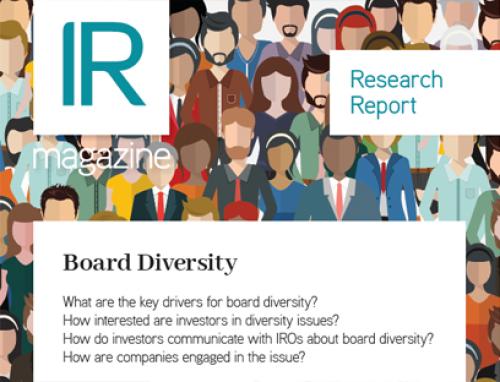The IR role is one that increasingly sits within finance
For an IRO considering a new role, the reporting line can be an important influencing factor on the decision. Historically, many IROs reported into communications, while a minority reported directly into finance. But the former can sometimes indicate a distance from finance; will this mean it is harder to form relationships? Alternatively, having an IR function within finance, completely distinct from communications, may make it harder to call for help when a crisis hits, crucial messaging needs to be crafted or the annual report rolls around again.
From our experience, IROs are increasingly reporting into finance instead of corporate affairs/communications. Today, in the FTSE 100, 79 percent of the IR responsibility sits within the finance team, and 8 percent in communications – a change from the traditional scenario in which it was more often seen within communications. In the US, this distinction is even more apparent: in the Fortune 200, our research shows 88 percent of IROs report directly into the CFO, with less than 2 percent reporting into communications.
Why is this shift happening? Firstly, CFOs are increasingly seeing IR as an important part of their function, and want to hold closer relationships with the investor base. Secondly, the career path of the average IRO is changing. If a future in corporate finance and a position on the finance leadership team are of interest to an IRO, then being seated within the function is a good place to start: you build the skills needed to navigate that environment, get to know the key players and the business inside out, and forge necessary relationships earlier.
As well as moving into finance, IROs are increasingly coming from finance. Internal moves from corporate finance are more and more common. Research by IR Magazine in 2014 finds that prior to working in IR, 61 percent of respondents worked in finance/treasury, while only 14 percent worked in marketing/communications.
So what does this tell us? Firstly, financial literacy is a must if you are going to hold your own alongside the CFO’s other direct reports. CFAs, ACAs, MBAs and the like are becoming increasingly common, and the cornerstone of a good IRO. In fact, financial qualifications are becoming less of a nice-to-have and more of a must-have as the intricacies of the profession develop. Since 2011, 69 percent of our IR placements have had a financial qualification.
But does where you report influence your career opportunities? No. Recruiters are largely indifferent to a candidate’s reporting line. Instead, they focus on the candidate’s responsibilities, relationships with key stakeholders, and knowledge and understanding of the business. Regardless of where an IRO sits, communications and the CFO will be the key stakeholders, and sitting in one or the other doesn’t excuse a lack of communication with either.
So a career in finance and even non-executive directorships or a place at the top table are all looking increasingly possible for successful IROs, and reporting into finance can be a key driver for this. But while an understanding of communications, and the relationship with that function, remains key, a reporting line into it is becoming less common, distinguishing the two functions and making them collaborators rather than partners.
Heather McGregor is managing director of executive recruitment firm Taylor Bennett
This article appeared in the fall 2015 print issue of IR Magazine










